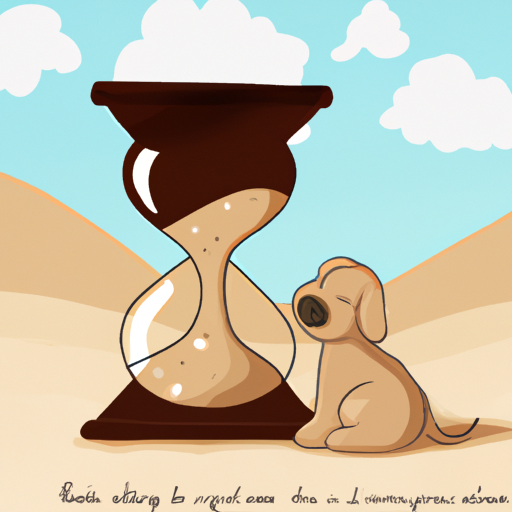As a caregiver to a furry friend, you’re probably awash in questions about your canine companion. One question that often comes up is, “how long are dogs puppies?” Well, you’re in the right place to get some answers!
Understanding Puppyhood
Just like human babies, puppies don’t stay little forever. They grow up fast, and before you know it, they’re adult dogs. But what exactly is the timeline? How long does this precious puppy phase last?
Typically, dogs are considered puppies until they reach one year of age. However, this can vary depending on the breed. Large breeds might reach adulthood at around 18 months, while smaller breeds can be adults by nine months.
The First Few Weeks: Neonatal Period
The first 2 to 4 weeks of a puppy’s life is known as the neonatal period. During this time, puppies are completely dependent on their mother. They spend most of their time eating and sleeping.
Here’s a breakdown of what to expect:
- Week 1: Puppies are born blind and deaf. They mostly sleep and nurse.
- Week 2: Puppies start to open their eyes. They begin to become aware of their surroundings, but still spend a lot of time sleeping and nursing.
The Next Few Weeks: Socialization Period
The socialization period, from weeks 4 to 12, is a critical time for puppies. It’s when they start to learn about the world and interact with others.
- Weeks 4-6: Puppies start to play and interact with their littermates. They begin to learn basic social skills and behaviors.
- Weeks 7-12: This is a crucial period for social interaction. Puppies should be exposed to a variety of experiences, environments, and people to ensure they grow up to be well-adjusted adults.
Adolescence: The Testing Period
From 6 months to 18 months, your puppy enters the adolescent phase. This is often a challenging time for caregivers, as puppies will test boundaries and exhibit rebellious behavior.
During this time, it’s important to be consistent with training and boundaries. Continue to provide plenty of physical and mental stimulation to keep your puppy engaged and out of trouble.
Adulthood and Beyond
After the first year to 18 months, your dog will officially be an adult. However, they may still act like a puppy at times. It’s important to remember that every dog is unique and develops at their own pace.
| Breed Size | Adult Age |
|---|---|
| Small Breed | 9-12 months |
| Medium Breed | 12-15 months |
| Large Breed | 15-18 months |
The Importance of Training
No matter the age of your dog, training is crucial. Puppies learn quickly, but adult dogs can learn new tricks too. Consistent, positive reinforcement methods work best. Remember, it’s never too late to start training your dog.
Health Considerations
During puppyhood, it’s important to keep up with regular vet check-ups. Puppies need vaccinations and frequent check-ups to ensure they’re growing properly. As they transition into adulthood, regular health screenings and preventive care are key to a long, healthy life.
FAQs
Q: When is a dog no longer a puppy?
A: Generally, a dog is no longer considered a puppy at around one year of age. However, this can vary depending on the breed.
Q: What is the most challenging phase of puppyhood?
A: Many caregivers find the adolescent phase, from 6 to 18 months, to be the most challenging. This is when puppies test boundaries and exhibit rebellious behavior.
Q: When should I start training my puppy?
A: Training should start as soon as you bring your puppy home. However, remember that training should be age-appropriate.
Q: How often should my puppy visit the vet?
A: Puppies should have their first vet visit within their first week of life. After that, they should have regular check-ups every 3-4 weeks until they are 4 months old.
Remember, as a caregiver, you play a vital role in your puppy’s development. Your patience, love, and care will help your puppy grow into a well-adjusted adult dog. Enjoy every moment of this journey, from the chaotic puppy days to the tranquil adult years. After all, they truly are man’s best friend.



